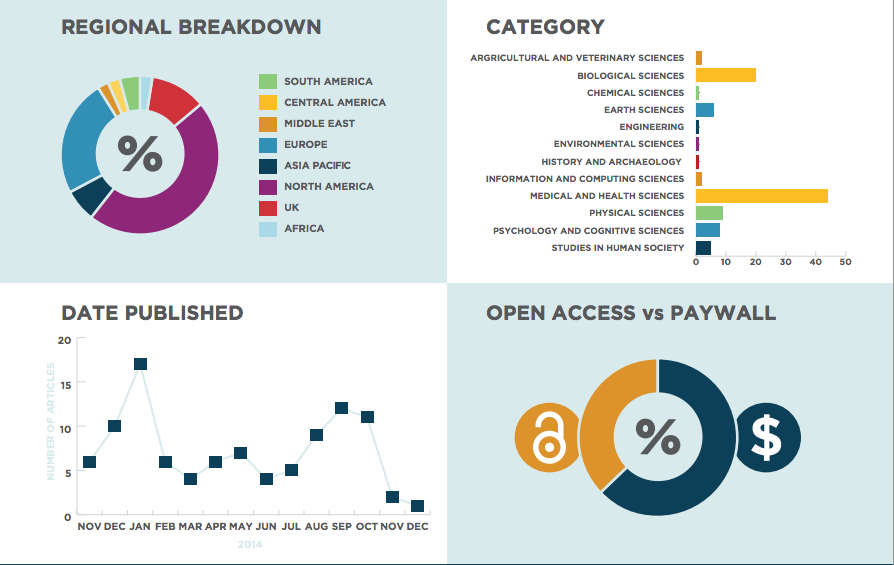Subscribe to our newsletter
The 2014 Altmetric Top 100
In what has become an annual tradition, Altmetric have released their list of the 100 scholarly articles that got the most attention this year. The Top 100 is created from a ranking of Altmetric scores, which are quantitative measures of attention derived from mentions on social media and in newspapers, government policy documents and other sources.
The list provides an interesting insight into the kind of research that gets the most coverage and is hence reaching a larger audience. This kind of data and analysis, as well as being a sometimes amusing look at what’s getting people talking, is also starting to be used by funders as part of their research assessment.
A quick look at the data behind the list provides some interesting insights into the nature of research impact and online conversations around research. Almost half of the Top 100 is made up of research in the medical and health sciences, followed by over 20% in biological sciences. Articles with a direct relation to personal health and everyday lifestyle choices often generate a lot of attention, for example at number 3 in the list is a paper dealing with the impact of artificial sweeteners on our tolerance of sugar. For a more detailed and comprehensive analysis it’s definitely worth reading Altmetric’s blog post which delves deeper into the statistical breakdown.
At the number one spot is the now infamous and controversial study by Facebook into ‘emotional contagion’. The study generated a lot of attention, both in the press and on social media, largely due to the ethical issues around attempting to manipulate the moods of Facebook’s users.
Euan Adie, founder of Altmetric, said of the list: “We continue to see a significant increase in the volume of research being shared and discussed online, and in the audiences engaging in those conversations. It’s no surprise to see that the most shared articles of the year heavily mirror the media agenda, but interesting to note that on occasion online communities are drawing attention to studies that have not received a significant amount of mainstream coverage.
“For example, we had more than 2,000 tweets for a study on how gaining basic certification affected nursing confidence levels. This reached a combined following of more than 2.2 million followers, demonstrating how social media can really boost the profile of some online published studies.”
Some of the more light-hearted articles featured on the list include the seasonally relevant “Christmas 2013: Research: The survival time of chocolates on hospital wards: covert observational study” as well as the amusingly titled “Searching the Internet for evidence of time travellers”.
Explore the full Top 100 in more detail here, with filters for journal, institution, subject area, country and access type.

